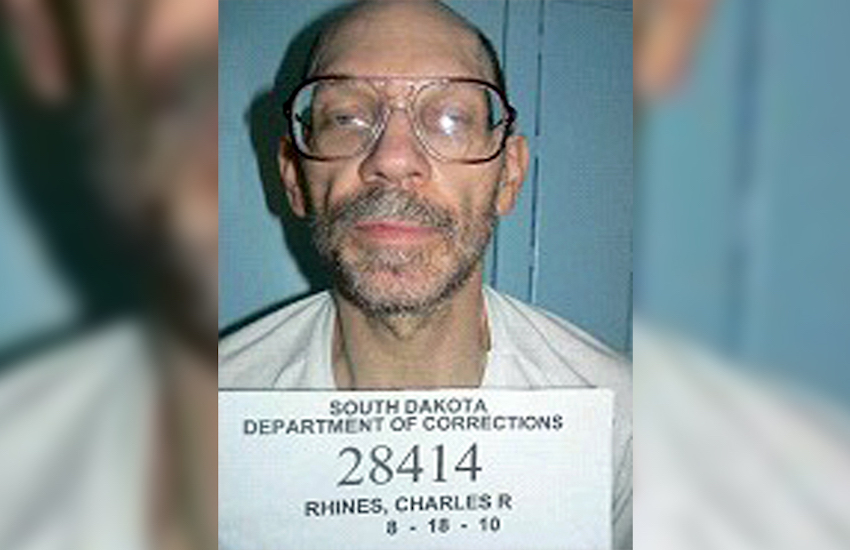The mugshot of Charles Rhines, a gay man sentenced to death after the jury thought he’d ‘enjoy’ prison
Charles Rhines, a gay man from South Dakota, was convicted in the 1992 stabbing death of a donut shop worker. But instead of facing a long prison sentence, the jury gave him the death penalty.
Their reason? Since he’s gay, he would ‘enjoy’ prison too much.
In June, Rhines attempted to appeal this sentence. Despite three of the jurors admitting their homophobic biases, the court refused to hear his appeal.
Enter Civil Rights groups
Now, six civil rights groups, including the ACLU and Lambda Legal, are urging the 8th Court Circuit to accept his appeal.
According to the court filing, new evidence ‘suggests that at least some members of the jury accepted the notion that life in prison without parole would be fun for a gay person – so much so that they felt it was necessary to impose the death penalty instead. In other words, significant evidence suggests that the jury may have sentenced Mr. Rhines to death based not on the facts of his case, but because he is gay.’
‘Mr. Rhines’s case represents one of the most extreme forms anti-LGBT bias can take. Evidence suggests that he has been on death row for the past 25 years because he is a gay man. The constitutional right to a fair trial must include the right to establish whether a verdict or sentence was imposed due to jury bias,’ said Lambda Legal Fair Courts Project Attorney Ethan Rice.
’Lambda Legal is proud to work with the ACLU, the ACLU of South Dakota, GLBTQ Legal Advocates & Defenders, National Center for Lesbian Rights, and the National LGBT Bar Association to provide important information to the Eighth Circuit on the history of bias against LGBT people and how that bias impacts LGBT rights in the criminal legal system.’
Why it matters
The brief of these documents refer to America’s long and troubling history of anti-LGBTI discrimination.
‘Well into the twentieth century, gay people were “prohibited from most government employment, barred from military service, excluded under immigration laws, targeted by police, and burdened in their rights to associate,”’ the 5th page of the Amici Brief reads.
In the 2017 case of Peña-Rodriguez v. Colorado, the United States Supreme Court held that states ‘must consider evidence that jurors relied on racial stereotypes or animus to convict a defendant in a non-capital case.’
Attorneys for Rhines argue the principles underlying the Peña-Rodriguez v. Colorado case also apply to anti-gay bias.
‘The Eighth Circuit should allow Mr. Rhines the opportunity to present evidence that anti-gay bias was a factor in some jurors’ decisions to sentence him to death,’ his lawyers say. ‘The need for review is especially compelling because the anti-gay bias in Mr. Rhines’s case may have made the difference between life and death.’







